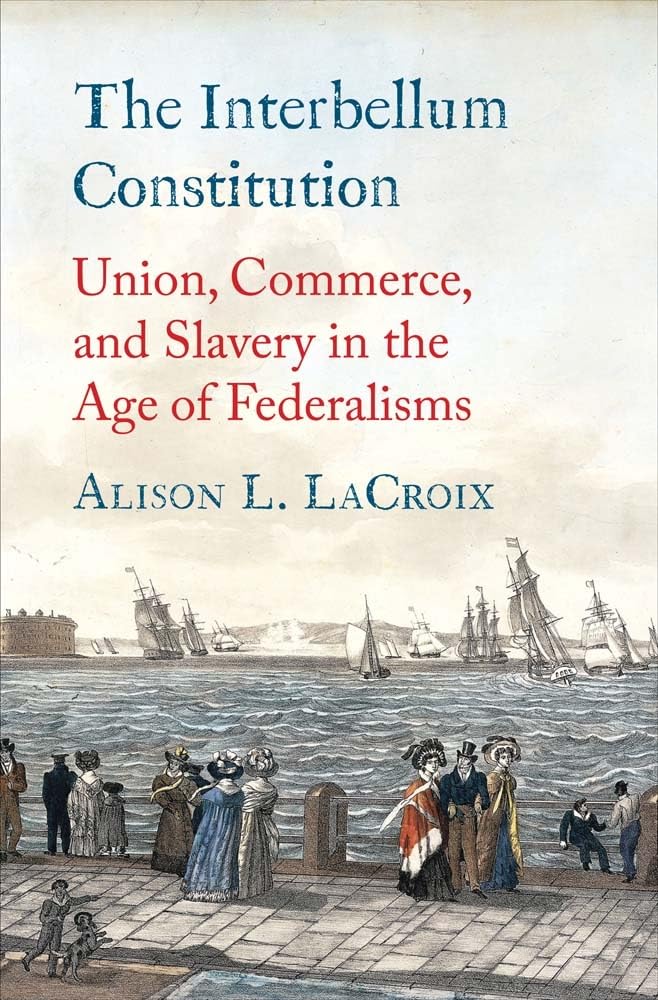Customer Services
Copyright © 2025 Desertcart Holdings Limited
Desert Online General Trading LLC
Dubai, United Arab Emirates


Full description not available
D**T
Brilliant, compulsively readable
Alison LaCroix is a genius. Her scholarship is profound, thought-provoking, and original. But what really sets her apart is her knack for drawing you into the story and telling it so supremely well. LaCroix teaches law and history at the University of Chicago Law School and the university's Department of History. She speaks as engagingly as she writes (she is online), putting a human face on her vast erudition - which she wears lightly. I can't imagine being in one of her classes: I would be on a perpetual intellectual high.The subject of this book is the ferment of American constitutional thought between the War of 1812 and the Civil War. If you are already yawning, try reading the book. Better than a hot espresso, it does for American legal history what Shelby Foote did for the history of the Civil War. At a time when the new nation was finding its footing, issues of commerce, for example, showed how diverse governmental entities competed over the same person, enterprise, or land. Federalism was becoming the subject of negotiation among legal and political players as they faced what LaCroix calls "the landscape of constitutional possibility." But when she vividly invokes the stories of men and women whose lives were involved, these abstractions themselves become part of the drama of our national life. Forget what you thought you knew about the years leading up to the Civil War; instead, engage with the flesh-and-blood Americans who were then busily pursuing their fortunes, propagating their families, and promoting their ideas in a lively and fascinating time. This is first-class history.
R**R
Brings to life one of the lesser known periods of U.S. history
LaCroix does an able job of debunking the notion that "there really were only two 'federalisms': 'states rights' and slavery or nationalism and freedom," to borrow the phrasing of a previous reviewer. Lacroix's argument is most effectively demonstrated in the case of the Wisconsin response to the federal 1850 fugitive slave law, but a half-century of cases in which the sovereignty of states, the "Union," and the federal government were contested on various grounds shows that the "federalism/good, states rights/bad dichotomy we usually take for granted was far from obvious to the participants at the time. Certainly LaCroix leaves no doubt that this perception was influenced by which U.S. region dominated the federal government -- and reminds us that the dominant region was the South in the decade leading up to the war. A richly detailed biographical treatment of the litigators (and influencers) brings this the legal history to life with exceptional vividness.
M**D
Lots of interesting details, but weak thesis
I regret that I couldn't give this book more than 3 stars. It suffers from 2 substantial weaknesses. First, it regularly conflates the terms "power" and "sovereignty". They just aren't the same. The individual states have powers, but have never had "sovereignty" in any meaningful sense of that word. Referring to them as "sovereign" gives far too much credence to the slaveholders who dishonestly argued for that in their efforts to preserve slavery. Second, the book treats as important too many weak arguments made over the course of the antebellum period. Contrary to the book's argument, there really were only 2 "federalisms": "states rights" and slavery or nationalism and freedom. At the end of the day, efforts to find some alternative ground failed.
Trustpilot
2 weeks ago
2 weeks ago